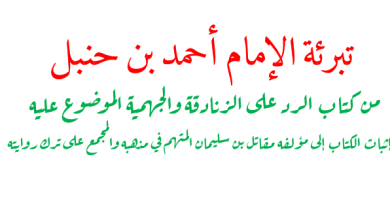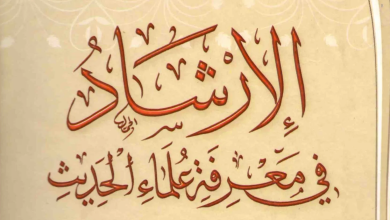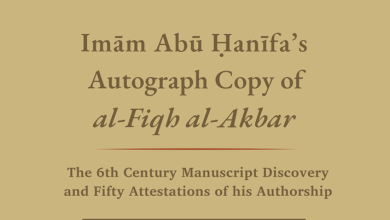Al-Albani on “The Saplings” in his Sect
Nasir al-Albani (d. 1999 CE), who was one of the major proponents and outspoken representatives of a modern day sect that describes itself as “Salafiyya”, spoke with some beneficial truth regarding a fact that was well known about many of those attached to his very own sect; namely that his sect has very few capable scholars, and many general followers lack good manners and upbringing, as well as the fact that his sect is in total disarray, filled with subdivisions and surrounded by groups of youths who pompously behave as though they are callers to Islam in the true way of the real scholars. See here for his verdict
The following is his description and judgement as translated and propagated by one of his own admirers on the levels of amateur scholarship and downright shallowness of many of those linked to pseudo-Salafism. Note also that he was describing the situation before his death in 1999, and since that time Salafism has gone via more turbulent disintegration into further factionalism which is often at odds with each other and waging written and oral attacks against each other has become a daily reality. This is especially visible to any simple researcher who visits Arabic or English websites and forums run by subdivisions within its ranks globally.
It is indeed a bitter reality of how many of these Salafi sect members behave and strut around pompously in various parts of the world with the catch phrase – “A return to the Qur’an and Sunna”, while acting as though they have been given the divine right to spread their ideology, methodology and distorted creed (aqida) on certain matters, with their warped and distorted understandings of the sources of Islamic law (Qur’an, Sunna, Ijma and Qiyas), and all the while misleading their own souls as well as many unsuspecting Muslims into the false sense of belief that they can do away with the real and classically accepted Mujtahid Imams like Abu Hanifa, Malik ibn Anas, Muhammad ibn Idris al-Shafi’i and Ahmed ibn Hanbal, and thousands upon thousands of scholars attached to these 4 Madhhabs for well over 12 long centuries of Islamic History, who truly explained the Shari’a with the right tools of taqwa (God-fearingness), qualified scholarship and abstention (zuhd) from this temporal world.
Before one reads al-Albani’s own words, it is recommended that the readers also take a look at the following links to see more on why this sect callings itself “Salafi” as well as hijacking the name of the real Ahlus Sunna wal Jama’a for its ends should not be taken seriously or accepted in any way as representing the way of the Saved Sect (Firqatun Najiyya) in this age:
Books Refuting al-Albani Directly or by Inference
Differences between al-Albani, Ibn ‘Uthaymin and Ibn Baz – In Fiqh and Aqida
Albani’s Aberrations & Errors – Shaykh Habibur Rahman A’zami
———————————————————————————————————–
Original source
Quote:
The Saplings: On the Innovation of People and Youngsters Who Have Barely Finished Secondary School Propping Themselves Up As ‘Daa’ees’ When They Know Only Simple Rulings and Maybe Some Aayahs and A Few Hadiths
Questioner: Virtuous, kind father, we would like you to explain to us what the correct methodology in the Salafi da’wah is, especially in this time in which tribulations have increased and knowledge has decreased, and what is the difference between organising …? We would like a clarification, may Allaah reward you with good.
Al-Albaani: Concerning da’wah, then none except the people of knowledge who maintain justice are to carry it out. As for what has become widespread in this time where lots of people who have been given an amount of knowledge that can hardly [even] be mentioned call themselves, ‘Callers to Allaah,’ then—and maybe you will find this surprising but I take the responsibility for what I [am about to] say—in my opinion this is one of the innovations of the present age.
It is from the innovations of this day and age that thousands of callers have spread out amongst the people who do not have knowledge of the Book nor the Sunnah or the narrations of the Salaf, in fact, [they do] not [even have knowledge concerning] the existent madhhabs that are blindly-followed today.
All they know are a few simple rulings and maybe some aayahs and some hadiths—which even someone from the people who has the least amount of knowledge can say—and then they prop themselves up as callers.
When they are then asked about a topic they are at a loss and are not able to answer, and they may go and answer based upon manifest ignorance, this is from the blights of the present day and age.
And it doesn’t stop at these sprouting youth, rather we may find old men who have not been given an abundant share of knowledge who have become famous as callers to what? To Islaam, but they [in fact] fight Islaam by fighting the Sunnah of Allaah’s Messenger ﷺ without which a Muslim cannot understand Allaah’s Book, so how can someone who is ignorant of the knowledge of the Sunnah and who fights some of it, [who] at the very least [fights it] in ’aqeedah, [how can someone like that] be a caller to Islaam?
… likewise today there are callers who have not been given an abundant amount or a lot of knowledge of the Sunnah according to which the Noble Quraan can be explained correctly.
So what is one to say about people like these?
In fact, what are we to say about the present day saplings who have barely finished secondary school let alone obtained a more advanced certificate from … even a professor’s certificate … even in Sharee’ah … what are we to say about these people who have propped themselves up to call to Islaam?
And he ﷺ said as is reported in Saheeh al-Bukhaari and Muslim, from the hadith of ’Abdullaah ibn ’Amr ibn al-’Aas, “Verily, Allah does not take away knowledge by snatching it from the people but He takes away knowledge by taking away the scholars, so that when no scholar remains, the people turn to the ignorant as their leaders. Then they are asked to deliver religious verdicts and they deliver them without knowledge—so they go astray [themselves], and lead others astray.”
… before everything, calling to Allaah must be done based upon knowledge:
وَمَنۡ أَحۡسَنُ قَوۡلٗا مِّمَّن دَعَآ إِلَى ٱللَّهِ وَعَمِلَ صَٰلِحٗا وَقَالَ إِنَّنِي مِنَ ٱلۡمُسۡلِمِينَ
“And who is better in speech than he who invites to Allaah and does righteous deeds and says, ‘I am one of the Muslims.’” [Fussilat 41:33]
If he is not a scholar who acts upon his knowledge then he will not be a righteous scholar, and someone who does not have something, as was said in the past, cannot give it.
So it is obligatory that the caller be a scholar, and this [too] is not enough, he must be a scholar of the Book and the Sunnah and not of some of the fiqh opinions of those who came later …
… this is the first thing, that he be a scholar, and secondly that he be a scholar of the Book and the Sunnah on the methodology of the Salaf as-Saalih. And lastly that he acts upon his knowledge, because even if calling to Allaah were done correctly one hundred per cent but is not coupled with that caller’s actions then it will not have the desired effect on the masses because people pay heed to following the actions of the people of knowledge and excellence more than they do their statements.
———————————-
Is there a solution for this type of disarray and pompousity in behaving like the real people of ilm (knowledge) according to the words of Nasir al-Albani himself? Indeed, in another post by his admirer the following were the words of al-Albani:
———————————————–
“Everyone who hears a statement from the Book or the Sunnah … not understanding anything from the Book and the Sunnah except a few phrases and words which he hears from some of the callers [daa’ees]–words which may be true and some of which may be incorrect … because of that [i.e., the few phrases he may have picked up, some of which are correct and some of which are not] he sees himself as having become a scholar, it being permissible [now] for him to say, ‘I think that … my opinion is that … I think that this statement is incorrect …’ and he interferes in every major and minor issue–all the while not being able to read a hadith correctly.
This [situation] has its dangers. And if the affair, and this is my personal opinion, if the affair hinges between following one of the four madhhabs and being rigid on it and between every Muslim becoming a claimant to knowledge and to ijtihaad, then there is no doubt that remaining upon what the forefathers were upon in following the madhhabs and discarding the opinions of the ignorant ones who have not studied any knowledge, is better. And this is by way of choosing the lesser of two evils.”
Download the above as a pdf file:






